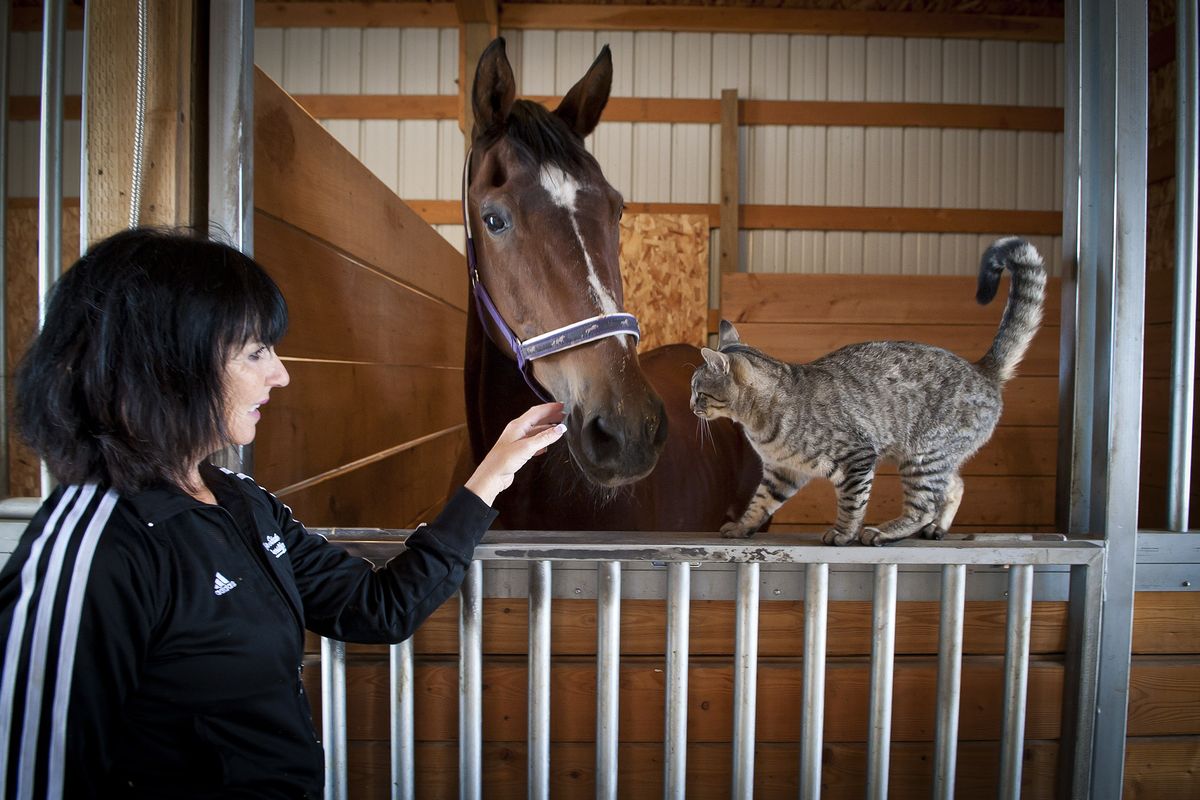SpokAnimal creates rural opportunities for cats
Program has saved 170 animals and reduced shelter crowding

Tiger the cat survived the streets, and then survived the threat of euthanasia, finally to find another chance at Janey Anderson’s farm.
Tiger is one of four stray cats taken in six weeks ago by Anderson and her husband on their 11-acre farm in the Dishman Hills area.
Anderson adopted the cats through a new SpokAnimal program called Farm Livin’ is the Life for Me. The program spays and neuters stray cats and sends them to one of 30 volunteer farms to live out their days rather than being euthanized.
“It’s giving them a second chance. Right now they have six weeks they never would have had,” Anderson said on her farm last week.
Farm Livin’ started as a way to combat the cat overpopulation in Spokane. According to SpokAnimal, the agency handles 60 percent more cats than dogs. Part of the problem is “cats breed like rabbits,” and people are more likely to spay or neuter their dogs than their cats, said Eileen Milla, a Farm Livin’ coordinator.
“Every area in town is overrun by cats,” she said.
Most of the cats sent out to the farms are feral – cats that have had no contact with humans and aren’t likely to become friendly. Some, however, are just strays brought into the shelter.
Since the program’s beginning in mid-June, SpokAnimal has placed 170 cats at farms like Anderson’s in places including Ritzville, Cheney and Edwall. All would have been euthanized otherwise.
The program has helped SpokAnimal significantly reduce the number of healthy cats that are euthanized only because of shelter crowding, by as much as 90 percent from last summer to this summer. At Anderson’s farm, the cats live in a five-stall horse barn. She feeds them once a day around 5 p.m. She said the cats will follow her and her husband around their farm. They even catch mice for her.
“They’re doing a job, too. I get about a mouse a day from them,” she said.
SpokAnimal received a $13,000 grant through the American Society for the Prevention of Cruelty to Animals to spay and neuter the cats before sending them to the farms. SpokAnimal tried to send some cats out to farms previously, but had to absorb the costs within the agency.
“Usually when ferals came in they had to be euthanized because there was no funding,” Milla said.
Health and age are factors in deciding whether to send cats to the farm.
“If they’re a little skittish it’s OK. We send them out there to be in nature,” Milla said.
Anderson said she knew about the overpopulation problem from being involved with the local shelters. She hopes to do more volunteer work with the cats in the future.
“Even if you don’t have time or a barn, you could just put a bowl of food out every day. If more people could just take one cat, the overpopulation wouldn’t be such a big deal,” Anderson said.